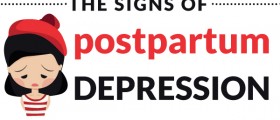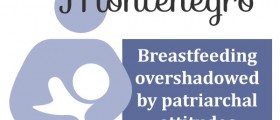
The study was published in the journal Obstetrics & Gynecology, and lead by Stephanie Watkins, who is an epidemiologist at the University of North Carolina, Chapel Hill. Her findings were based on a larger study of women that looked into infant feeding methods and how women felt about breastfeeding. The participants were screened for postpartum depression after two months. Those who had severe breastfeeding pain had an overall depression rate of 35 percent did, while those who didn't were found to have a depression rate of 22 percent. Women who said they disliked breastfeeding in week one after giving birth were found to have a 42 percent higher chance of depression.
Does that mean that breastfeeding complications or difficulties, and particularly pain, is directly responsible for postpartum depression? Watkins pointed out that that remains unclear, and that we can't make such a conclusion at this point. Other factors can also be at play, and besides that women who are already depressed may just be much more likely to say that they dislike breastfeeding or suffered great pain than those who weren't. In order words, perhaps the depression these women are going through can be causing the pain during breastfeeding, rather than the other way around.
In either case, it is great news that research into postpartum depression is ongoing, to help women who will come face to face with this nasty condition later on. Currently, screening for postpartum depression is not a routine part of postpartum care in the United States of America, mainly because the ACOG (American College of Obstetricians and Gynecologists) assesses this to be too expensive.
















Your thoughts on this
Loading...